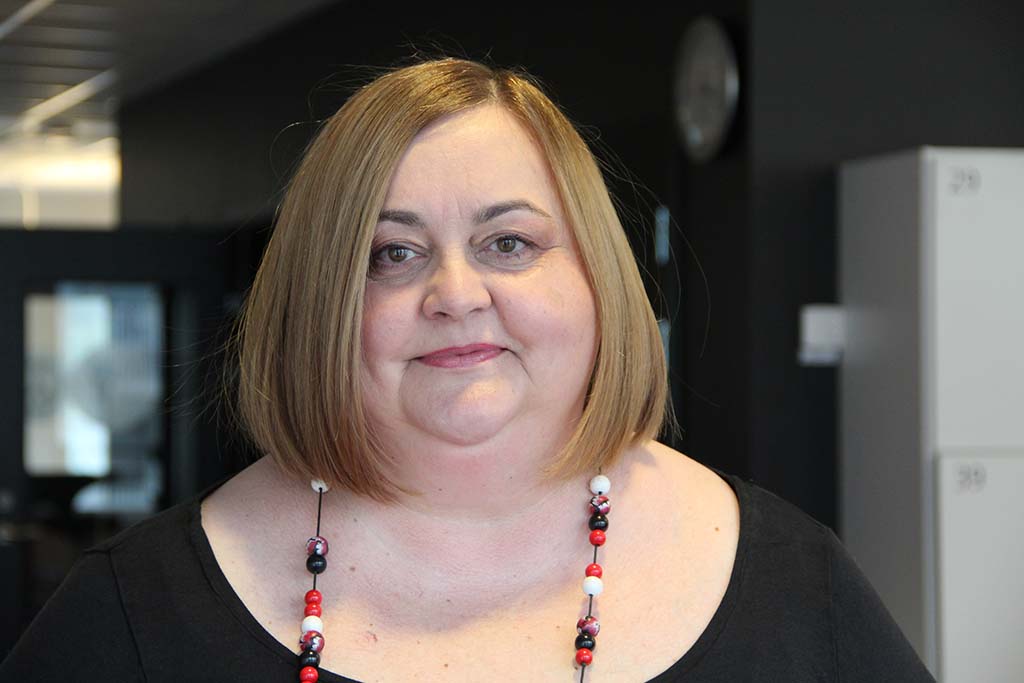“I woke up to the sound of bombing”
From bombings in Baghdad to refugee camps in Croatia, Lejla Somun carries multiple experiences from conflict-affected countries with her.

As a young teenager, Lejla Somun, Grants Manager at The Kvinna till Kvinna Foundation, experienced the discrimination of women in conflict-affected countries up close. She was born in Sarajevo, located in present-day Bosnia and Herzegovina, which was part of Yugoslavia at the time.
Bombings in Baghdad
In 1980, Lejla’s father was working for the Yugoslav government and brought the family along to Baghdad in Iraq.
“The first experience I had of war was in Baghdad, at the start of the Iraq-Iran war. Iranian MiG-21s were bombing Baghdad in late September that year,” says Lejla.
She continues:
“I woke up to the sound of bombing, unusually my father was sitting at the base of my bed, and when he saw me wake up, he was pointing towards the large windowpanes, saying ‘Those are birds, just some big birds.’”
At this point, Lejla was only thirteen years old but could see that her father was very upset. And there was no way those big planes could have been mistaken for birds. Later in life, she would find it interesting how women and girls are tried to be ‘shielded’ from conflict by men and boys, while they are being denied information and lied to. This, together with another experience in Baghdad, would stay with Lejla for a long time.
“We were a few families on the terrace roof of the house, and we were watching anti-aircraft missiles shoot through the night sky. It seemed that it was easier to bear the sound of conflict if you could see it. A friend leans over to tell me, ‘Look how spectacular, you would wish to have such fireworks for your wedding!’”
Lejla and her family remained in Baghdad for another few weeks before being evacuated to Yugoslavia.
Visit to refugee camp in Croatia
When women go unheard, not only are their interests under-represented, but their valuable skills, ingenuity, resilience and knowledge are unused. Lejla grasped the effect of women’s voices being unheard, being invisible in history, in politics, in decisions taken that affect their lives, when she was on her first visit to a refugee camp in Croatia in the early 1990s.
At the time, she was 24 years old, working for an international humanitarian agency. She was accompanying a team visiting the camp who were there to assess the level of humanitarian aid that was reaching it and determine the conditions of living in the camp. Lejla was the only woman in the team, and when they entered the camp, very soon many women flocked around her and lead her away.
“They asked me if I had any period pads or if I could get some pads and underwear for them. They explained that the humanitarian aid packages included some hygienic products like soap, shampoo, toothpaste, washing powder, but never pads, and that when they got second-hand clothes, no one ever offered to buy them underwear,” says Lejla.
Displaced persons and refugees
Experience and research show that “Displaced persons and refugees are often the forgotten casualties of war. The fact that worldwide the majority of refugees are women with their dependent children contributes to this neglect.” (Source: Gilliland, M. 1995). “Life in a refugee camp itself affects gender roles and relations; old roles become difficult or impossible to fulfil. The refugees must adapt to new patterns in daily life, and new relationships with family members and others both in the camps and in the local community. They have also lost work that gave meaning to their lives and roles that gave them identities and purpose.”
In addition to having to adapt to those vast changes, learning to live with the lack of things, including basic hygiene products for periods.
“I learned later many other aspects of refugee life in camps can have an impact on the safety of women and girls. For instance, gender-based violence can be considerably prevented in refugee camps if there is adequate planning of where bathrooms for women and girls are located, or other important service points relevant for women and girls, and in ensuring sufficient lighting throughout the camp,” says Lejla.
The effect of women’s rights organisations
Lejla spent many years working as a consultant in human rights issues, including gender mainstreaming, but found her niche with The Kvinna till Kvinna Foundation. Working with Kvinna till Kvinna gave her reassurance that there are programmes that do have an impact towards achieving gender equality, and that supporting women’s civil society organisations, through networking, grants and capacity development, with strong local ownership, does have an effect on the change on everyday lives of women.